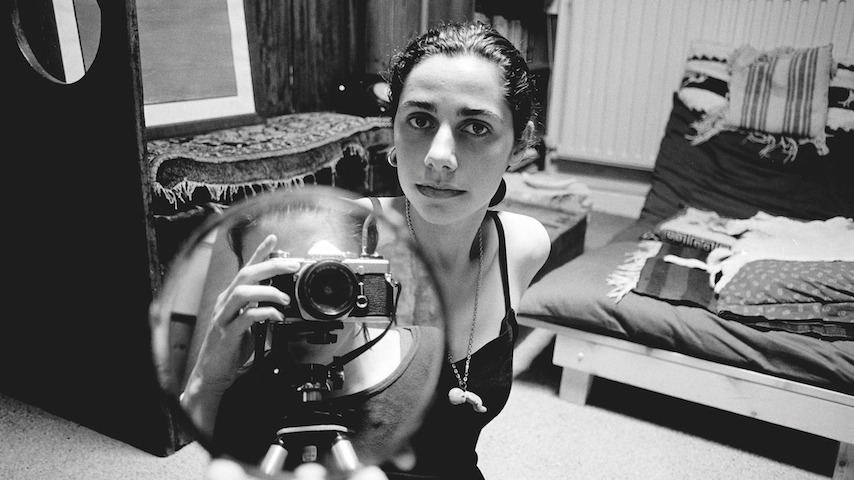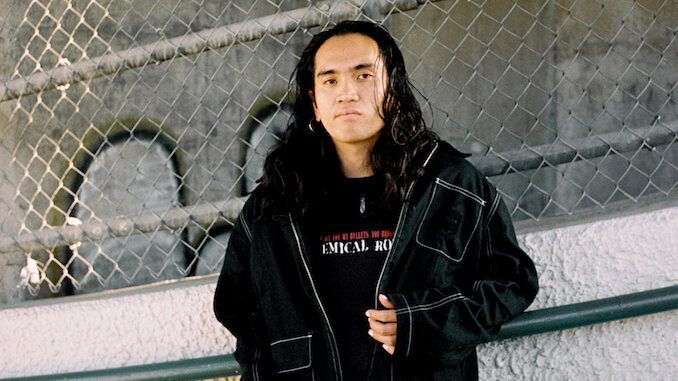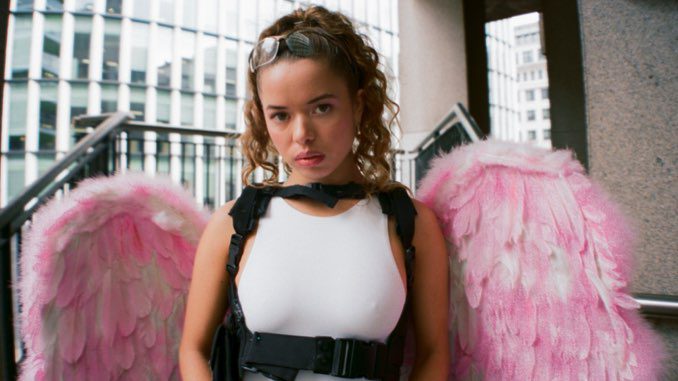Welcome to our new Gateways column, where Paste writers and editors explore the taste-defining albums, artists, songs or shows that proved to be personal “gateways” into a broader genre, music scene or an artist’s catalogue at-large—for better or worse.
Growing up is confusing, which is why many people have a strange or complicated evolution as music listeners. After I passed the phase of listening to whatever Sean Kingston or Fergie song kids happened to be talking about in my middle school classrooms, I began seeking out music on my own, searching for something that would transport me out of my suburban melancholia, middle child syndrome and general black sheep-ness. There were a lot of things I was trying to escape, even subconscious undercurrents that I would only realize years later.
One of those later epiphanies was my discomfort and confusion surrounding my own femininity—something I chose to ignore for the better part of my life. Before ever contemplating questions about gender identity or sexuality, I was self-conscious about my aggressively tomboy image and personality, even though I occasionally used it as a badge of honor. Thinking about it now, it was pretty peculiar that I was the only girl playing pick-up tackle football with the boys who lived on my street, and they weren’t going easy on me or afraid that I would get hurt. I was decidedly not painting my nails, braiding friends’ hair or imagining my dream wedding. I’m still kind of floored (and thankful) that for the most part, no one really picked on me for spending my formative years wearing nothing but t-shirts, running shorts and baseball caps and spending summers racking up bug bites, jammed fingers and scraped knees from all the sports I was playing.
The first music I fell in love with was classic rock and Britpop, two genres I still love to this day, but share something pretty glaring—they’re mostly dominated by men. I loved the rollicking songs of The Kinks, the rough snarl of Liam Gallagher and the creepy bravado of Black Sabbath. Their music fit in perfectly with the masculine way I carried myself, and it actually made me feel more confident in that self-image. I could listen to these lofty songs without having to grapple with my insecurities around femininity—they just made me feel good. I wasn’t purposely avoiding music made by women, but most of the bands I was listening to in my mid-teens were male. This was partially because I was ignorant about all the great female artists, and quite possibly because I was subconsciously a harsher critic of that music. I now know that was a manifestation of the rejection of my own femininity, but I still feel immensely guilty about it because today so many of my favorite musicians are women.
One of the first female artists who really resonated with me was PJ Harvey. Her songs are muscular and marked by thunderous guitars and a strapping persona that slaps you across the face. Harvey wasn’t just assertive—her music was physical in a way that I hadn’t really heard before, making a lot of the bands I was listening to before sound bland or uninspired. Her 1992 debut LP Dry (which was recently reissued on vinyl with an accompanying demos album) isn’t my favorite PJ Harvey album, but it was my introduction to her music and her introduction to the world. Like much of her early work, Dry was rudimentary, visceral and sexually explicit, and it totally blew my narrow perceptions of femininity out of the water. It was melodramatic yet primal, angelic yet dysfunctional—exactly what I needed to hear at the time.
Right out of the gate, Harvey takes on dual personalities. On “Oh My Lover,” her meaty guitars and domineering vocals sound like she’s stepping on someone’s throat, but her lyrics are meek and subservient towards her conflicted boyfriend (“Oh, my lover / Don’t you know it’s all right? / You can love her / And you can love me at the same time”). Discovering multifaceted portraits like this one felt like I had just unearthed an exciting new passageway in the confined cave I was living in.
“Dress” was another song I needed to hear, as it captures Harvey’s feelings of relative discomfort with femininity (“It’s hard to walk in the dress, it’s not easy / I’m spilling over like a heavy-loaded fruit tree”). In the song’s spunky chorus, Harvey repeats the phrase “If you put it on,” as if this outward display of traditional womanhood via sparkly red dress is just a choice. She later describes herself as “A falling woman in dancing costume,” which almost reads like she has an alien view of clothing. It was a naive song, but also powerful, mocking the guy who calls her “you purdy thang” on a night out.
As a girl who attended a Catholic high school named after Mary, mother of Jesus, it felt like fate that a song like “O Stella” existed. By that time in my life, I knew Catholicism wasn’t for me, but Harvey’s “Stella Marie” (her cheeky nickname for Mary) did make me appreciate the majesty of the Virgin Mary, even in a merely symbolic way. The thought of Mary hyping up a young, headstrong Polly Jean Harvey from a cloud of angels as Harvey took on the world sounded cool as fuck. The stomping chords on this track and others on Dry also made me want to play guitar (which I did for an embarrassingly brief period before picking it up again years later).
It wasn’t just the lines Harvey sang, but how she sang them that got my attention. She sings with theatrical agony (“Oh My Lover”), magnetic indifference and pop brilliance (“Dress”) and blunt, sensual vigor (“Happy And Bleeding,” “Sheela-Na-Gig”). As someone who hadn’t yet heard Patti Smith’s Horses or Liz Phair’s Exile in Guyville, this album hit me like a truck. The way she accentuates certain phrases or lines is astounding. She expels the word “victory” in her song of the same name as if an ominous creature is crawling up her back, garbles several lines on “Dress” to deride a man and tweaks her emphasis on each repeated line of the “Fountain” outro (“And on my hill I wait for wind”), almost providing alternate meanings.
Harvey poetically divulged tales of being chewed up and spit out by men, but still exuded a sexual confidence that celebrated her desires. Hearing these sentiments from a lanky, 23-year-old woman who grew up on a farm helped instill my belief that young women are powerful, complex and don’t need to conform to any standards (whether that’s daintiness or forcefulness). Harvey’s androgyny (captured in her raw album covers throughout the years) and lack of concern for gender roles was inspiring and something she continued with later songs like the gender-swapping “Man-Size” or marriage-defying “The Pocket Knife.”
I’m still navigating my own self-image and identity, and I’m not really sure where it will lead me. But watching people proudly set fire to restrictive views of femininity or masculinity—whether they’ve internalized these things or not—makes me feel like I don’t have to have all the answers. Sometimes I imagine myself in the first line of PJ Harvey’s “Victory” (“I stumble in and in, you fit me with those angel wings”), bumbling around in a sea of my own muddy thoughts and perceived expectations, but Harvey welcomes me into her weird world anyways. It’s a nice place to be.
Lizzie Manno is an associate music editor, Coldplay apologist, bread obsessive and lover of all things indie, punk and shoegaze at Paste. Follow her on Twitter @LizzieManno




